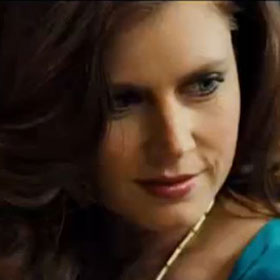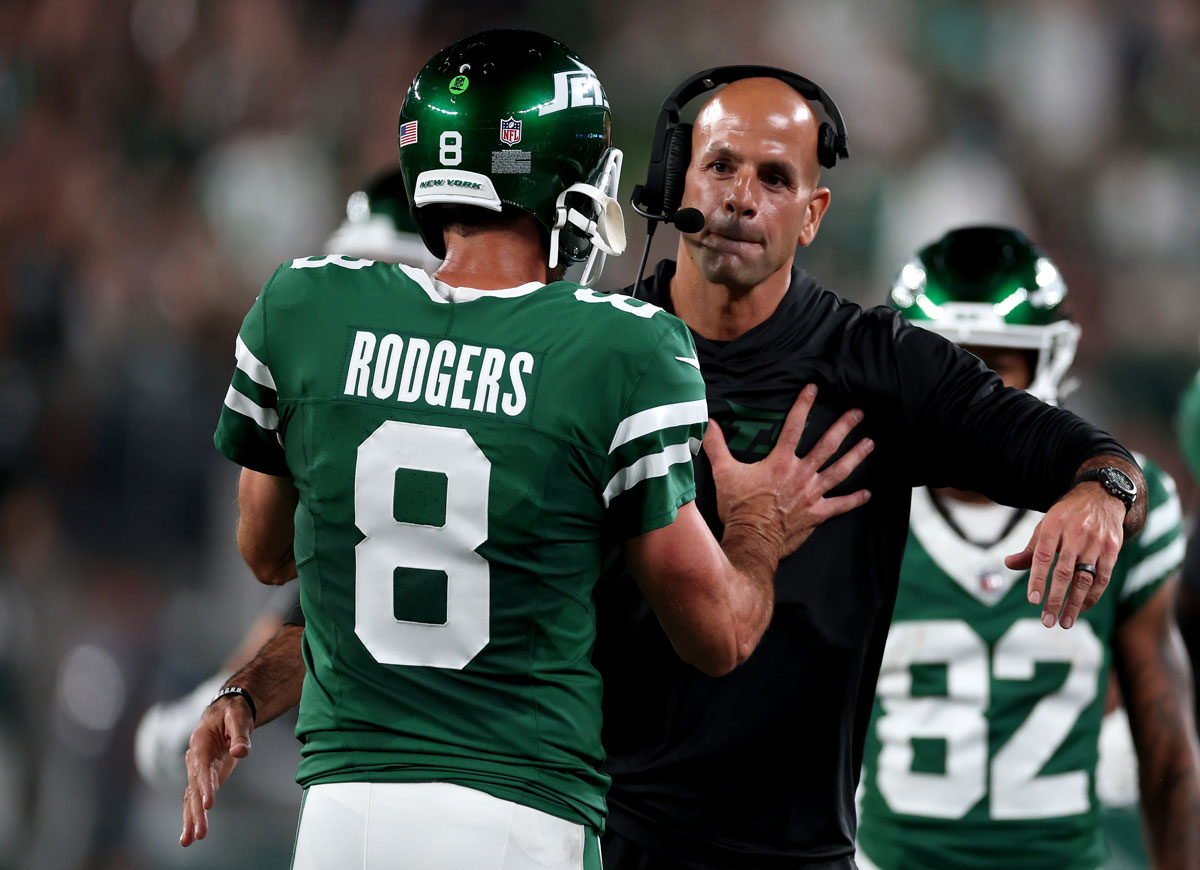'American Hustle' Review: Amy Adams Stuns

4/5
American Hustle, a film about con artists, Irving Rosenfeld (Christian Bale) and Sydney Prosser (Amy Adams) who get caught up in a sting operation with over-ambitious FBI agent Richi DiMaso (Bradley Cooper), is unlike any film you’ve seen this year, especially not like the ones being lauded as the best films of the year. The opposite of the critically acclaimed 12 Years A Slave and Inside Llewyn Davis, American Hustle is never quiet, never calm and never leisurely. It’s loud, it’s crazy, it’s funny and, at times, slightly off balanced, in a good way. As has come to be expected from director David O. Russell, whose last two films, Silver Linings Playbook and The Fighter, have dominated awards season, the acting in American Hustle is superb. If every film had a cast this eclectic and talented, I think moviegoers everywhere would die of happiness, or at least lock themselves up in a movie theater and never leave.
Adams, as Sydney/Edith, gives one of her best performances ever in American Hustle, due in no small part to the fact that she is finally given a role strong enough to challenge her. Adams has been on the A-list since her gripping performance in Junebug (2005), and Adams attacks her role in American Hustle with a gumption that simply cannot be ignored. She dominates the film, even opposite recent Oscar winner Bale. It may be cliché, but Adams is positively magnetic in the film, and her presence elevates every scene she is in.
The entire cast follows Adams’ lead, delivering excellent performances. In fact, the best proof of Adams’ prowess as an actress is how every actor kicks it up a notch when they share the screen with her. In particular, the always stellar Jennifer Lawrence shines as Bale's scorned and needy wife, Rosalyn, in her scenes with Bale, but she truly comes alive during a confrontational scene with Adams. (I could watch these two women exchange heated looks for days.) The same can be said of Cooper, who, granted, has his most compelling scenes opposite Adams regardless.
Louis C.K. has a delightful supporting role as Stoddard Thorsen, DiMaso’s grumpy, by-the-book boss. Louis C.K. brings a surprising calmness to Cooper’s DiMaso. As the foe to DiMaso’s agency ambitions, Thorsen already quashes the character’s ambitions. And, as a scene partner to Cooper, C.K.’s unaffected approach brings Cooper’s character back into the real world, anchors him, if you will.
That’s not to say Cooper over-acts in the role of the increasingly insane DiMaso. The character is so flamboyant and outlandish that Cooper can’t help but appear over-eager in his performance. This could be a fault in the writing more than anything else. As a character, DiMaso misses the mark. He doesn’t live in a drama, or a comedic drama; DiMaso lives in a comedy. To put it in terms of Bradley Cooper’s career on the big screen, DiMaso is closer to his role in Wedding Crashers (2005) than Silver Linings Playbook (2012). The character is a caricature in a film populated by real, live action people. No matter how ridiculous the other characters get, they remain plausible. Lawrence’s character, for example, is similarly cartoonish, but she lives right on the line between real and parody and Lawrence is able to make Rosalyn human enough for her craziness not to distract the audience. Cooper's character, however, lacks the subtlety that would allow him to do the same.
As a con movie, American Hustle isn’t the best I’ve ever seen, but that is by no fault of its own. Russell, who co-wrote the script, clearly did not want to make a movie about the thrill of the heist (à la Ocean’s Eleven). Instead, the film chooses to focus on the characters playing the con, which grounds the film and prevents the plot twists from becoming too elaborate to keep straight.
Russell, still flying on the success of The Fighter (which stared Bale and Adams) and Silver Lining’s Playbook (which earned Lawrence her Best Actress Oscar last year), departs from the grittiness of his last two hits in American Hustle. The set design, costume and art direction works to stylize the film, but not overly so. American Hustle is one of the few period films that don’t overcrowd the frame with set pieces. Period films often fall into the trap of being overly dressed, with sets and costumes screaming at the viewer: “LOOK! We’re in another time!”
To add dimension to the unassuming period set design and quicken the pace of the film, Russell relies heavily on a swift, moving camera. The camera is almost constantly zooming in or out, tracking movements on the screen or swinging by the actors. The movement works to create heist movie feel without the tricky plot. However, it’s a technique that would have been more effective had it been used sparingly. As it is, the increased camera movements at crucial moments in the film don’t emphasize a moment so much as make the viewer dizzy.
American Hustle is rated R and opens in limited release Friday, Dec. 13, and in theaters everywhere Friday, Dec. 20.
RELATED ARTICLES
Get the most-revealing celebrity conversations with the uInterview podcast!



 by
by 



Leave a comment